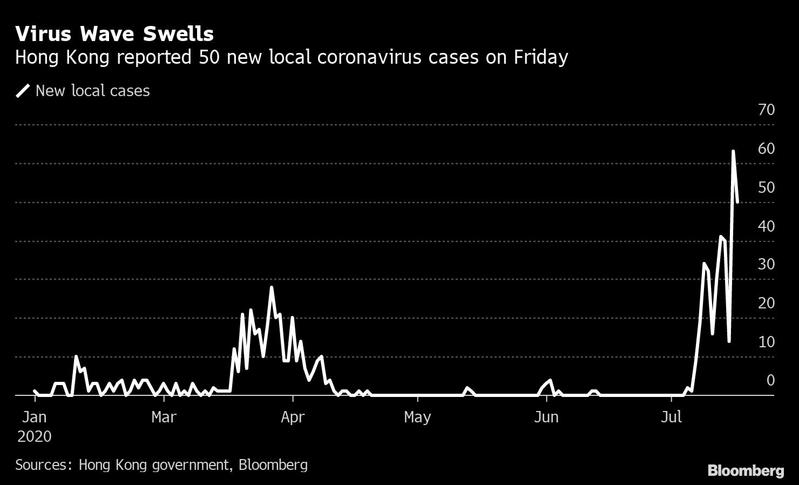
HONG KONG - Hong Kong authorities reported 50 locally transmitted coronavirus cases and one more death from the disease on Friday, stoking further concern about an escalating third wave of infections in the global financial hub.
Including imported cases, the number of new cases in the past 24 hours was 58, taking the tally since late-January to 1,713 patients.
The resurgence in the Asian financial hub has moved at an aggressive pace and erupted less than two weeks ago, after a long stretch during which residents returned to work and normal life
Out of the 50 local infections, 32 are related to the previously confirmed cases, while the source of infection of the other 18 cases remain unknown, Chuang Shuk-kwan, head of the CHP's Communicable Disease Branch said at a media briefing on Friday afternoon.
A 71-year-old female patient with underlying conditions died Friday afternoon, the 11th death from the COVID-19 pandemic in Hong Kong.
Hong Kong on Thursday posted 63 locally transmitted cases, the highest on record for a single day.
The resurgence in the Asian financial hub has moved at an aggressive pace and erupted less than two weeks ago, after a long stretch during which residents returned to work and normal life. About a third of infections in the new outbreak are of unknown origins, signaling that hidden chains of transmission are widespread.
READ MORE: HK sees record daily spike of 67 virus cases in swelling wave
A similar scenario is building in Japan and Australia, reflecting the challenge of containing the pathogen even in places that were widely lauded and emulated for their containment strategies. The new waves are a sobering reminder to other regions further behind on the pandemic timeline, like Europe, on challenges to come.
Tokyo and Australia’s Victoria both marked record single-day highs on Friday of 293 and 428 respectively.
ALSO READ: Shenzhen requires virus test certificate of travelers from HK
“Countries which controlled the disease well in the early part of the year will remain at risk of outbreaks and even sustained community transmission, until we have a vaccine,” said Raina MacIntyre, professor of global biosecurity at the University of New South Wales in Sydney.
However, the size of the new waves in the region may reflect more testing and earlier detection of cases, and officials are hopeful of minimizing economic and social suffering with better management strategies.


